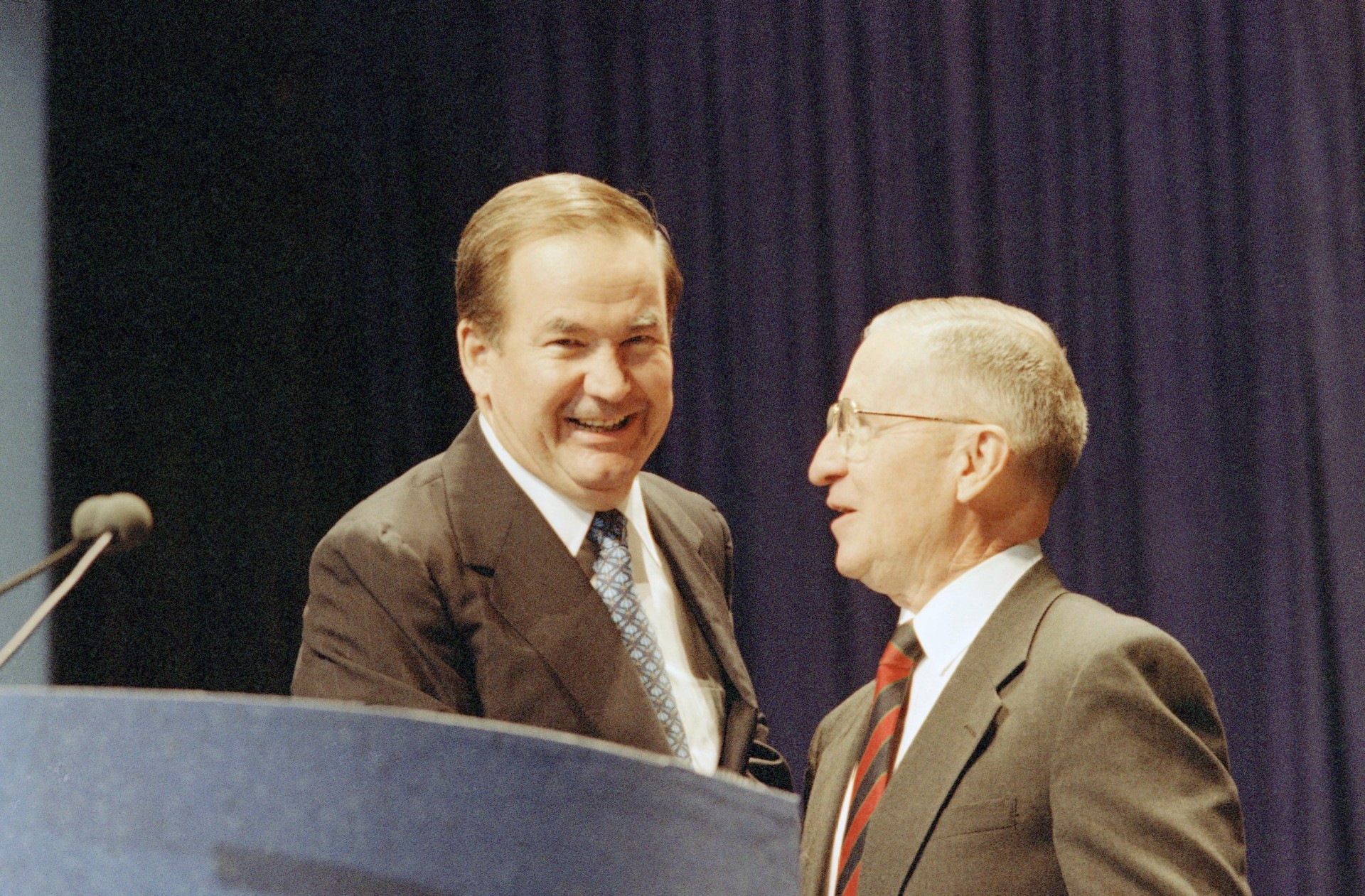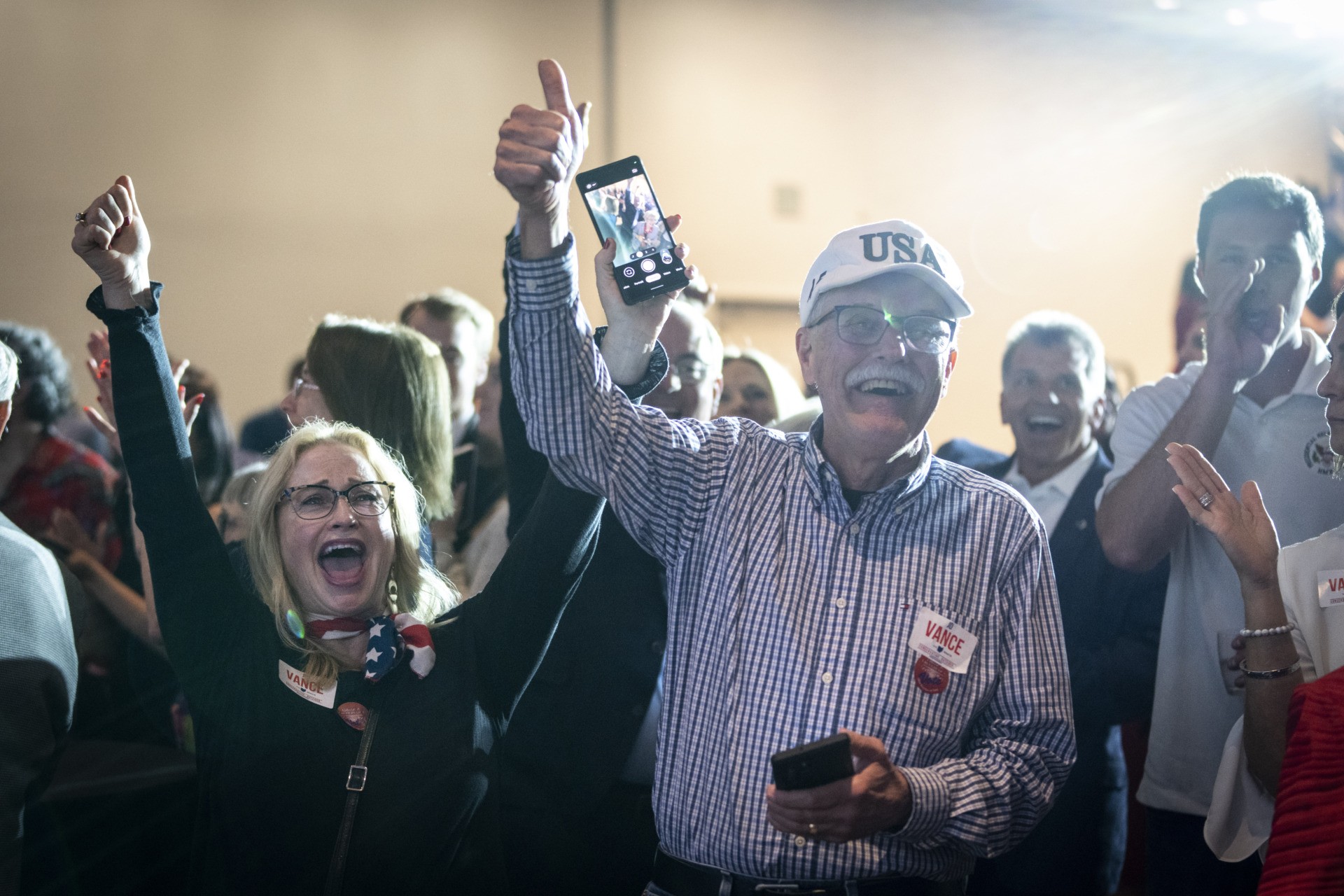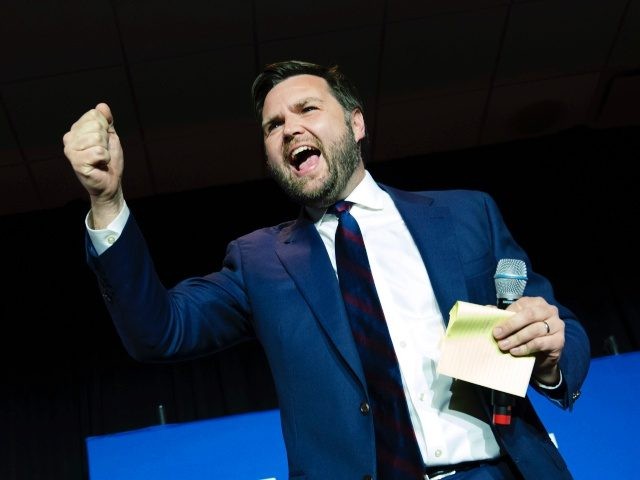In June 2016, Ohio’s Republican Senate candidate J.D. Vance was publishing his memoir Hillbilly Elegy: A Memoir of a Family and Culture in Crisis, the New York Times best-selling book that later became a major motion picture featuring Glenn Close and Amy Adams.
Vance’s memoir follows the struggles of his family in Middletown, Ohio, notably tackling the issues of addiction, quality of life, working class values, and the deindustrialization of America’s heartland through the lens of his childhood.
At the time of the memoir’s release, then-candidate Donald Trump was on his way to scoring the Republican presidential nomination against a crowded field of establishment types like Jeb Bush, economic libertarians such as Sen. Ted Cruz (R-TX), and wealthy corporate executives like Carly Fiorina.
Their messaging took on different variations that ultimately focused on the same Republican points that had been the fixture of GOP politics since at least the year 2000: Tax cuts, free marketism, promoting democracy worldwide, and reliving the Reagan Era.
Trump had a much different message that harkened back to the 1992, 1996, and 1999 presidential runs of Ross Perot and Pat Buchanan. The themes, as derided by the Republican establishment in each election, were shaped around economic nationalism, national populism, and a rejection of the neoconservative Republican beltway in Washington, D.C.
Perot was quickly labeled “a frightening demagogue” in his 1992 run by Republican lawmakers. In his 1996 run, one Texas Republican declared that Buchanan’s opposition to free trade was “a dagger aimed at the heart of everything we stand for in the world.”
Buchanan, at the time, went after Bob Dole for having “put the interests of the big banks ahead of the interests of American workers.”

Presidential candidate, Pat Buchanan, left, is welcomed to the United We Stand America National Conference in Dallas, Saturday, August 12, 1995 by UWSA founder Ross Perot. (AP Photo/Tim Sharp)
Like Perot and Buchanan’s campaigns, Trump drew from the recent history of working and middle class American families like the one described in Vance’s memoir — those left behind by the globalization of the American economy and a Left-Right immigration agenda hellbent on transforming the workforce and electorate.
“The most important difference between our plan and that of our opponents, is that our plan will put America first. Americanism, not globalism, will be our credo,” Trump said during his July 2016 Republican National Convention (RNC) speech, vowing to punish multinational corporations for outsourcing jobs, reduce overall immigration levels, and dismantle the D.C. beltway’s thirst for foreign war.
Trump’s populist agenda was so hated by beltway conservatives and the GOP establishment that the Koch brothers network poured millions into a last-ditch effort to stop his nomination. Ultimately, that effort failed.
France’s Marine Le Pen, who leads the National Rally, at the time summed up the political realignment happening across the globe but most prominently in the United States.
“There is no more left and right. The real divide is between the patriots and the globalists,” Le Pen said in 2015. Le Pen, like Trump, has routinely broken political orthodoxy with aggressive populist platforms that have featured tariffs, fast deportations, environmental conservation, and preservation of national heritage.

French far-right party Rassemblement National presidential candidate Marine Le Pen looks on at the Pavillon d’Armenonville in Paris on April 24, 2022 after the announcement of the first projections by polling firms of the French presidential election’s second round results. (THOMAS SAMSON/AFP via Getty Images)
When Vance announced his candidacy for the Ohio Senate Republican primary, he did so by immediately pushing back against multinational corporations with near-monopolies in particular markets that have increasingly snuffed out small, family-owned businesses.
“I want to fight for the small businesses who are struggling to hire and struggling to build a great company because the government and multinational corporations make it harder,” Vance said.
The announcement kickstarted a series of populist-nationalist policy positions that Vance not only endorsed but urged fellow Republicans to get behind.
Months before announcing his Ohio Senate bid, Vance blamed corporate donors for waves of illegal immigration year after year in an interview with Breitbart News. The remarks were a clear break from carefully crafted Republican talking points that typically harp on the MS-13 Gang, crime, and terrorism as a way to escape discussing the economics of mass immigration.
“There are two things I’ve noticed about the immigration debate that has just really bothered me,” Vance said. “The first is that it’s often driven by donors, primarily Democratic donors, but unfortunately, donors on the right as well who want cheap labor.”
“I’ve heard them talk about this when they don’t think anybody’s listening … they want cheap labor and they don’t care what consequences follow for their own country so that they can get that cheap labor,” Vance continued.
As Breitbart News reported, Vance’s position that tariffs on foreign imports ought to be used to reshore America’s manufacturing base made him an enemy of the Club for Growth, which has promoted a free trade agenda for decades.
The group spent millions in an attempt to stop Vance’s victory on Tuesday evening. Vance, with an endorsement from Trump, outpaced his Republican competitors by nearly 88,000 votes — winning all but 14 counties in Ohio.

Supporters cheer as Republican U.S. Senate candidate J.D. Vance is announced winner of the primary, at an election night event at Duke Energy Convention Center on May 3, 2022 in Cincinnati, Ohio. Vance, who was endorsed by former President Donald Trump, narrowly won over former state Treasurer Josh Mandel, according to published reports. (Drew Angerer/Getty Images)
Consultants working for Vance’s competitors reportedly phoned Trump after results trickled in and credited his endorsement for the win. Vance’s opponents have sought to claim that much of his populist rhetoric was solely to earn Trump’s endorsement.
That take was crushed when Vance was the only Republican in the race not to seek a relationship with the Ohio Chamber of Commerce and to oppose intervention and U.S. military aid in Ukraine.
The Republican establishment, though, surely does not assume so.
Republican insiders told Axios, after Vance’s victory, that the Ohio Senate candidate’s populist agenda will almost certainly face opposition from lawmakers in his own party. Axios reports:
The Republican establishment privately regards Vance with the same disgust many felt toward Donald Trump when he entered the White House on Jan. 20, 2017. … Vance has made statements on the campaign trail that have repulsed establishment Republicans, including members of the Senate leadership. Major Republican donors — including the powerful Club for Growth — spent millions trying to defeat him.
In his victory speech, Vance put such accusations to bed. He said to cheers:
The question in this primary was do we want to have a border that protects our citizens, do we want to ship our jobs to China or keep them right here in America for American workers … do we want a Republican Party that stands for the donors who write checks for the Club for Growth or do we want a Republican Party for the people right here in Ohio? We just answered that question.
“Think about the drug crisis. An establishment Republican Party that refused to do anything against the Sackler family which poisoned this state with drugs and an establishment Democrat Party that is actively encouraging the Mexican drug cartels to flood us with even worse drugs … how about we put them both in jail,” Vance said.
John Binder is a reporter for Breitbart News. Email him at jbinder@breitbart.com. Follow him on Twitter here.

COMMENTS
Please let us know if you're having issues with commenting.